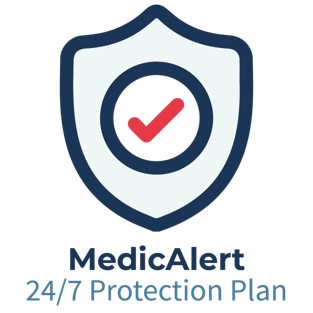Caring for a Loved One with Alzheimer’s

When you’re a caregiver for a loved one with a chronic illness such as Alzheimer’s or dementia, it’s hard to know what any given day will be like. Some days are better than others. Life is grand when your loved one is feeling strong and healthy, ready to take on the world. But the challenging days come hard and fast.
The hard days bring a lot of stress and exhaustion. And sometimes with stress and exhaustion, guilt creeps in. The guilt that you are not doing enough for your loved one. The guilt that you want 20 minutes to yourself uninterrupted. The guilt that you need help but feel - well, guilty - asking anyone to step in. Because asking for help brings on other worries. Will the person you ask for help know that spending time with your loved one is hard work? That caregiving means attending to their every need – making sure they eat, are hydrated, take their medications - and above all, keeping your loved one safe?
Safety, First: Alzheimer's and Wandering
According to the Alzheimer’s Association, 6 in 10 people with dementia or Alzheimer’s will wander. Those with memory impairment can become disoriented and may not remember their name or address, even in places they visit often. So, what does it mean to keep a loved one safe? For those caring for a loved one with Alzheimer’s or dementia, it’s taking active measures including but not limited to:
- Installing top and bottom door locks that are out of the line of sight for the affected person
- Placing alarms on every entry and exit way, including windows
- Keeping car keys out of sight
- Providing local police and emergency response teams with a photo of your loved one, along with a list of places they may wander
- Communicating your emergency response plan to neighbors
Even if you take all precautions, wandering can still happen. That’s why investing in a service like MedicAlert is important for an extra layer of protection and peace of mind.
We’ve got you covered.
What is MedicAlert?
Well, it’s not just a medical ID. MedicAlert is peace of mind, knowing that if your loved one wanders or has a medical emergency, MedicAlert Foundation has their back – and yours. With a MedicAlert ID and protection plan, your loved one’s medical history and emergency info is stored, safe and secure, in their MedicAlert profile.
How does it work?
Emergency response teams are trained to look for a MedicAlert ID. Should your loved one wander or become lost, accessing the MedicAlert ID number on the member’s bracelet or necklace will connect first responders to MedicAlert’s 24/7 MedicAlert Emergency Response Team. In an emergency, they will relay your loved one’s complete medical history and list of emergency contacts, providing first responders with a detailed health record and action plan.
Our Emergency response team diligently works with first responders in wandering incidents to quickly reunite missing persons with their loved ones. We transmit photos and a missing person’s report to police, hospitals and first responders, and proactively reach out to community outlets to advise them to be on alert. With our Wandering Support service, MedicAlert has the knowledge, experience and network that has led to over 15,000 successful resolutions of wandering cases.
Caregivers have enough on their plate. A MedicAlert ID and protection plan delivers peace of mind for caregivers. By helping keep their loved one safe, MedicAlert means everyone can breathe a little easier.
To learn more about Alzheimer’s visit the Alzheimer’s Association, our dedicated partner. The Alzheimer’s Association is the world’s leading voluntary health organization in Alzheimer care, support and research. Our mission is to eliminate Alzheimer’s disease through the advancement of research; to provide and enhance care and Support for all affected; and to reduce the risk of dementia through the promotion of brain health. Our vision is a world without Alzheimer’s


